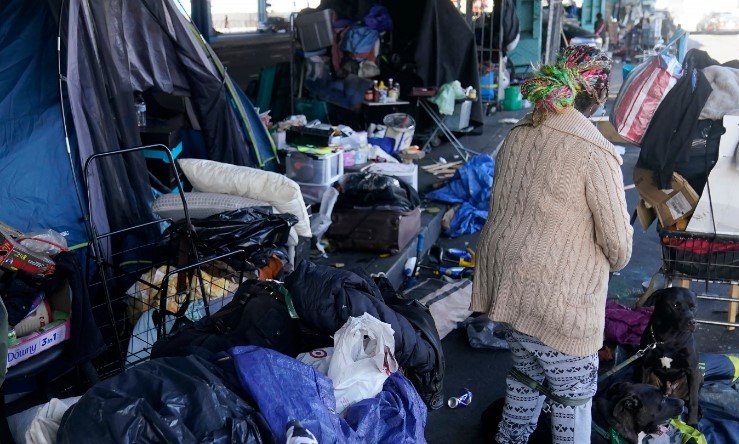In a significant legal battle, the Supreme Court is currently deliberating the constitutionality of municipal ordinances that penalize homeless individuals for camping on public property when they have no other place to go. The case centers around the small city of Grants Pass, Oregon, where several ordinances prohibit sleeping or camping on publicly owned property, including sidewalks, streets, bridges, and city parks. The key issue at stake is the punishment imposed by these ordinances, which can include fines of up to several hundred dollars and exclusion orders barring people from public areas.
The Eighth Amendment and Homelessness
The Eighth Amendment of the United States Constitution prohibits cruel and unusual punishment. Advocates for the homeless argue that these ordinances effectively punish people for merely existing when they lack alternative housing options. The underlying issue of housing shortages remains unaddressed, and the measures fail to provide meaningful solutions. While cities already have the power to regulate encampments, the question before the Supreme Court is whether a city can make it illegal for people to live outside on every inch of city land when they have nowhere else to go.

The Appeals Court Ruling
The San Francisco-based 9th U.S. Circuit Court of Appeals ruled in 2022 that Grants Pass’s anti-camping ordinances are prohibited under the Eighth Amendment. This ruling applies to all nine states within the court’s jurisdiction, including California. Several cities, such as Los Angeles, San Francisco, and Phoenix, have asked the Supreme Court to overturn this decision. The Biden administration has also weighed in, emphasizing that laws barring sleeping on public property are unlawful if they prevent individuals without available shelter from residing in the jurisdiction.
Balancing Public Health and Individual Rights
During oral arguments, the city’s attorney emphasized that these ordinances are generally applicable and essential for public health and safety. However, the case raises complex questions. Justice Clarence Thomas questioned whether the Eighth Amendment has ever been applied to civil penalties. Justice Amy Coney Barrett wondered about drawing lines regarding behaviors like public urination. The court grapples with the tension between protecting public spaces and respecting the rights of homeless individuals. While the court leans toward the city’s position, the outcome remains uncertain.

Comments